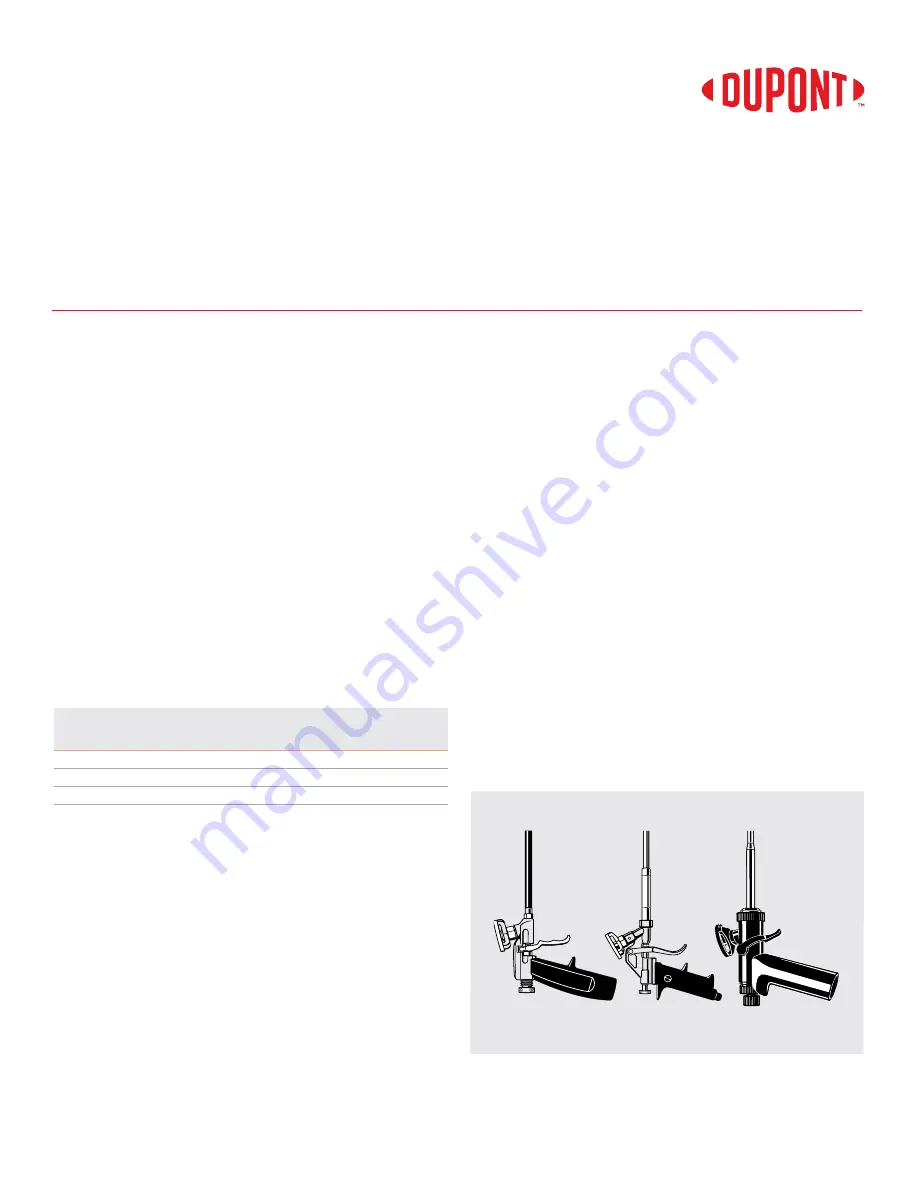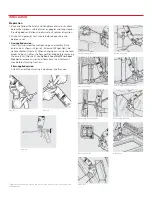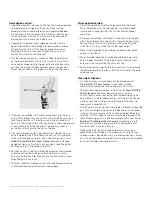
DuPont
™
Enerfoam
™
Professional
Foam Sealant
Installation Recommendations
Installation Information
SYSTEM OVERVIEW
General Information
The instructions outlined here describe how to use
DuPont
™
Enerfoam
™
Professional Foam Sealant
* to fill gaps and cracks
around the home.
Designed to form a durable, airtight and water-resistant seal
in gaps up to 3” (75 mm),
Enerfoam
™
expands to take the shape
of cracks and voids, forming a permanent, airtight and water-
resistant bond to wood, brick, vinyl, foam board, metal and most
plastics.** Once cured, it remains soft and flexible, permitting
natural expansion and contraction of surrounding surfaces.
In the U.S.,
Enerfoam
™
is also recognized as an effective fireblock
penetration sealant. Applications include adhering insulated
concrete forms, architectural foam and drywall, and sealing
cracks and voids such as pipe penetrations. The foam expands
only enough to generate an effective seal, retaining elasticity as
the structure expands and compresses. To determine the amount
of
Enerfoam
™
required for an application, see Table 1.
*
DuPont
™
Enerfoam
™
Professional Foam Sealant
is a former product of The Dow Chemical Company.
** For cavities, cracks and penetrations larger than 3” (75 mm), DuPont recommends Froth-Pak
™
Foam Sealant or Froth-Pak™ Foam Insulation. For window and door framework, minimal-expanding
DuPont
™
Great Stuff Pro
™
Window & Door Polyurethane Foam Sealant
is proven not to distort or bow the framework when properly applied.
Pro 13
Pro 14
Pro 15
Figure 1
T
ABLE 1: Estimated Yields for Enerfoam
™
Professional
Foam Sealant
Can Size, oz (g)
Delivery
Yield
(1)
,
linear feet (m)
Estimated Caulk
Equivalency,
quart tubes
24 (680)
Reusable straw
775 (236)
18
24 (680)
Gun
970 (296)
22
30 (850)
Gun
1,450 (442)
33
(1)
Estimated yield under ideal conditions, 3/8” (1 cm) diameter bead.
Safety and Conditions of Use
• Read the label and Material Safety Data Sheet carefully
before use.
•
Enerfoam
™
contains isocyanate and a flammable blowing
agent. Vapor may travel to other rooms. Ensure adequate
ventilation. Shut off all pilot lights and extinguish open flames;
eliminate all sources of ignition before use. Do not smoke or
use lighters or matches while dispensing foam.
• Do not breathe vapor or mist. Use in well-ventilated areas
or wear proper respiratory protection. Isocyanate is irritating
to the eyes, skin and respiratory system, and may cause
sensitization by inhalation or skin contact.
•
Enerfoam
™
is very sticky and will adhere to most surfaces
and skin. Do not get foam on skin. Wear long sleeves,
gloves, and goggles or safety glasses. Cured foam must
be mechanically removed or allowed to wear off in time.
• The contents are under pressure. The can may burst if left
in areas susceptible to high temperatures, such as motor
vehicles, or near radiators, stoves or other sources of heat.
Do not place can in hot water. Do not puncture, incinerate
or store at temperatures above 120°F (49°C).
•
Enerfoam
™
may be used on vinyl, wood, composite and
metal (aluminum or steel) substrates. The product adheres
best when surfaces are clean and free of oil or chemicals.
• Extremely cold temperatures can affect dispensing
performance.
• Skin of cured foam can discolor if exposed to direct or
continuous sunlight for 24 hours or more. Foam should
be painted or coated if prolonged exposure to sunlight is
expected.
• Using one of the PRO Series foam dispensing guns
(shown in Figure 1) simplifies the application of
Enerfoam
™
.
In addition to enabling pinpoint application control, an
airtight and moisture-tight seal between the gun and the
can prevents the foam from curing and blocking the
dispensing valve.






















